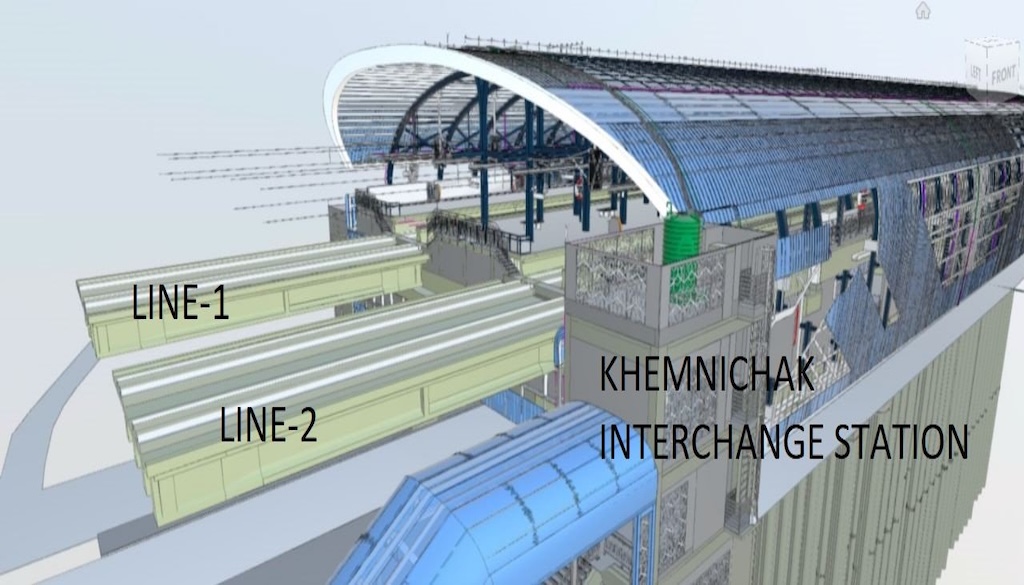Green Light for Khemnichak Station Clears Hurdle for Patna Metro’s August 15 Launch

Patna: Patna Metro’s much-anticipated debut has cleared a critical obstacle, with the district administration finally granting permission for construction of the Khemnichak Metro Station — a key interchange on the priority corridor. The clearance comes after prolonged delays due to land acquisition issues, which had threatened to sideline the station from the initial launch phase.
Metro officials confirmed on Saturday that with land-related hurdles resolved, construction at Khemnichak will now begin immediately. The station, designed as an elevated interchange, will play a crucial role in easing commuter flow across Patna’s upcoming urban transit network.
Earlier, Delhi Metro Rail Corporation (DMRC) — the implementing agency — had considered bypassing the station in order to meet the Independence Day deadline. With the green light now in place, the station will be included in the initial 6.63 km stretch between Malahi Pakadi and the Pataliputra Bus Terminal. This elevated route includes five stations: Malahi Pakadi, Khemnichak, Bhootnath, Zero Mile and the Pataliputra Bus Terminal.
Tunnel Progress and Network Expansion
The Patna Metro project, spanning 32.40 km from Danapur to Patna City, continues to move forward in phases. A 1.5 km underground tunnel has already been completed between Moinul Haque Stadium and Patna University. Construction is currently underway on the stretch between Patna University and Patna Junction, where tunnel boring is in progress. Once complete, tunnelling will resume between Malahi Pakadi and Moinul Haque Stadium.
Work on the underground section from Patna Junction to Rukanpura, however, is yet to begin.
Push for Cheaper Power
Meanwhile, the Patna Metro Rail Corporation (PMRC) has appealed to the Bihar Electricity Regulatory Commission to supply electricity at a reduced rate. Officials have requested a tariff Rs1.50 cheaper than the existing railway traction rate, arguing that the metro is a public transport initiative, not a profit-driven enterprise.
“Unlike the Railways, the Metro operates as a non-commercial public service,” said a senior official. “In other states, metros are already benefiting from lower tariffs. Expensive electricity will place a higher burden on both the government and commuters.”
The commission is expected to conduct a hearing before issuing its decision.
Engineers Deployed to Accelerate Work
To meet the August 15 launch target for the priority corridor, the Urban Development and Housing Department has deployed 19 junior engineers to PMRC — including 11 civil, four electrical and four mechanical engineers.
“This large-scale recruitment is part of our strategy to fast-track ongoing work,” said Urban Development Minister Jivesh Kumar. “The priority corridor is a top focus and we are pushing for its timely completion.”
In total, 378 junior engineers have been appointed across Bihar’s urban bodies, including BUIDCo and the Bihar Housing Board, in an effort to strengthen the execution of infrastructure projects across the state.






